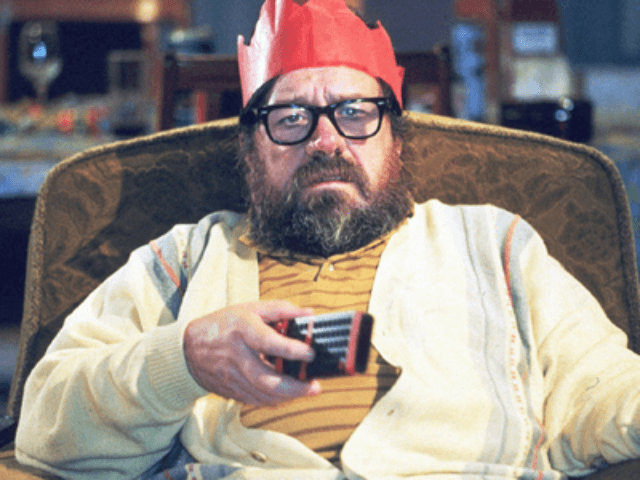The BBC, the most mainstream of mainstream media outlets, has been caught up in a “fake news” controversy after reporting that Christmas was set to be cheaper than ever – only to decide just three days later that costs had in fact rocketed, with Britain’s vote to leave the European Union firmly in the frame.
https://twitter.com/JackBMontgomery/status/809908459932094464
The original story, published on November 30th by Personal Finance reporter Brian Milligan, reported brightly that “Christmas 2016 may be the cheapest ever”. It cited research by Good Housekeeping, which has been publishing a Christmas dinner index since 2009.
Tracking eleven essential ingredients, Good Housekeeping calculated that a family of six could tuck in for as little as £2.48 per head this year, provided they shopped around for the best prices. If buying all the items at a single store, shoppers would get their best deal at low-cost retailer Aldi, where they could gather all the necessaries for just £22.03.
Milligan also cited separate research on Christmas trees, which can be bought for a mere eighth of their price in 1975, when Britain held its last European referendum.
Three days later, however, the BBC ran a new and entirely contradictory story, this time claiming that prices were up by an astonishing 14 per cent. The supposed “uncertainty caused by the UK’s Brexit vote to leave the European Union” was in the dock by the fifth sentence; a theme the BBC would return to again and again throughout the article.
The publicly-funded broadcaster arrived at its sensational “costs rise 14 per cent” headline by throwing out Good Housekeeping’s methodology of going by the best available prices and instead working from its own “average prices”.
The BBC also added items not included in the original Good Housekeeping index to their list, which just so happen to have gone up in price since 2015.
Even more remarkably, the BBC has removed low-cost retailers from their calculations entirely: not just relatively new market entrants Aldi and Lidl, but also Iceland, a long-established business which topped Good Housekeeping’s list for affordability last year.
They have instead decided to concentrate “on the bigger stores, the likes of Tesco, Asda, Sainsbury’s and Morrisons”, but provide no explanation as to why.
There is no indication as to whether they also removed Marks and Spencer and Waitrose from their calculations, which would necessarily push up the average price of goods. Good Housekeeping calculates the cost of buying Christmas dinner for eight at upmarket stores, even using the most inexpensive available ingredients, at a whopping £40.02 and £49.90, respectively.
The decision to exclude the so-called discounters is inexplicable, given that they have been the driving force behind the price wars which dominate the sector. Indeed, Aldi overtook Waitrose to become the Britain’s sixth largest grocer last year, while Lidl has just announced that it will open a brand new UK headquarters, roll out 250 new stores and create 5,000 new jobs in London alone as part of its £1.5 billion UK investment plan.
Die-hard Remain campaigners such as economist Christian Odendhal have tried to spin the success of these affordable retailers as a sign that Brexit Britons will be desperately short of money, but one-in-three customers for these retailers was being drawn from the bargain-savvy middle and upper classes as early as last March – exactly the demographic likely to take Good Housekeeping’s advice to shop around for the best price.
Further analysis by the British Retail Consortium (BRC) seems to support the findings of Good Housekeeping and leave the BBC data unit’s take looking even less justifiable, indicating that food prices are down by 1.7 per cent year on year.
“These figures once again point to retailers’ effectiveness in controlling the inflationary pressure that continues to build through the devaluation of the pound”, commented BRC CEO Helen Dickinson. “We have still yet to see any visible impact from the weaker pound on shop prices”.
Evidence points to Brexit reducing food prices substantially over the longer term, with continued access to an effectively limitless supply of low-wage migrant labour uncertain, food manufacturers are investing in automation, increasing competitiveness and productivity.
Freedom from the EU policies and regulations may also allow for a specifically British agricultural policy which supports British farmers and embraces innovation, while new trade agreements with countries like Australia, which enjoy their summer as Britain bears down for winter, could provide a year-round supply of affordable, in-season produce.
Common agricultural and commercial policies would also no longer apply to Britain, meaning import quotas and punitive tariffs may disappear, leading to the prices of bananas, pineapples, sugar, and more, to tumble.
In the case of sugar cane alone, a more generous tariff regime outside the EU would not only allow UK businesses like Tate & Lyle to go from job losses to growth, but could even the reverse the enormous damage which further changes to EU sugar regulations are set to inflict on developing countries, pushing 200,000 into poverty and increasing demands on an already bloated foreign aid budget.
The British Broadcasting Corporation failed to mention any of this in their revised claims about Christmas shopping prices.

COMMENTS
Please let us know if you're having issues with commenting.